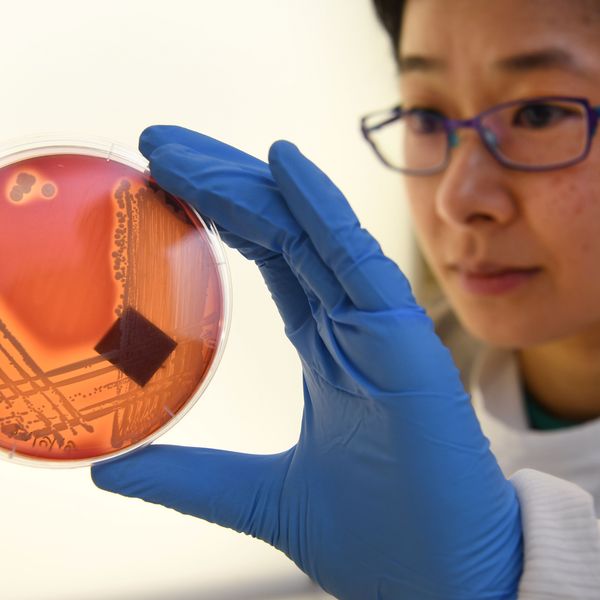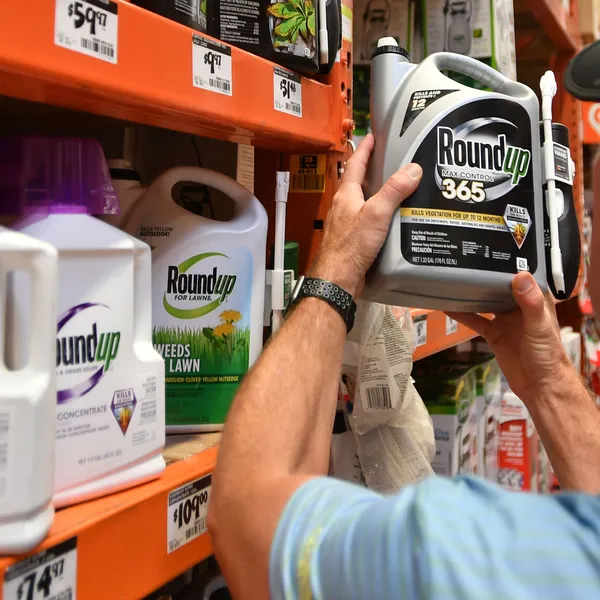A new health report shows that bacterial superbugs are on the rise while health and consumer advocacy groups blame overuse among both humans and livestock as the root cause.
Research by international NGO, Center for Disease Dynamics, Economics & Policy, found that "residents of Appalachian and Gulf Coast states, where antibiotic use rates are highest, take about twice as many antibiotics per capita as people living in Western states." States where usage is highest include Kentucky, West Virginia, Tennessee, Mississippi, and Louisiana.
Reporting on the research USA Today adds that, despite findings that overall prescription antibiotic use among patients in the US has dropped 17% since 1999, misuse of the drugs has grown:
Drugs for many bacterial infections are becoming ineffective because they are so often taken when they are not needed--allowing bugs that cause everything from pneumonia to sexually transmitted diseases to adapt and survive future attempts at treatment. Much of the overuse is for colds, flu and sore throats caused by viruses--illnesses that antibiotics can't help.
The report is one of several being released as part of the Center For Disease Control and Prevention's "Get Smart About Antibiotics Week" November 12-18, during which physicians and health organizations call attention to the abuse and growing impotence of valuable medicine.
One troubling example of this, according to research by the CDDEP, is "certain types of bacteria responsible for causing urinary tract infections (UTIs), the second-most-common infection in the United States, are becoming more difficult to treat with current antibiotics...with the overall share of resistant bacteria increasing by over 30% between 1999 and 2010."
The report found that the "burden of antibiotic resistance for urinary tract infections was highest in the Southeast states" where research has indenfitifed these regions as "the most intensive users of antibiotics." They write that this overuse "likely speeds up the development of resistant strains of the bacteria causing these and other more serious infections."
In a related action, the Consumers Union--the policy and advocacy arm of Consumer Reports--made a statement on Monday calling for a major reduction in the use of antibiotics in food animal production blaming overuse for the promotion and spread of drug-resistant superbugs.
"It's time to stop the daily feeding of antibiotics to healthy food animals which makes these life-saving medications less effective for people," Jean Halloran, director of food policy initiatives for Consumers Union, announced in a press release.
The statement continues:
Some 80 percent of all antibiotics sold in the U.S. are used on food animals, mostly to make them grow faster or prevent disease in crowded and unsanitary conditions. As a result of large scale use of antibiotics in livestock production, most of the bugs that are vulnerable to the antibiotics are eventually killed off, leaving behind superbugs that are immune to one or more of the drugs. These superbugs spread on the farm and beyond, contributing to antibiotic resistance in hospitals and our communities.
Numerous health organizations, including the American Medical Association, American Public Health Association, Infectious Disease Society of America, and the World Health Organization, agree that there is "strong evidence of a link between antibiotic use in food animals and antibiotic resistance in humans," and have called for significant reductions in the use of antibiotics for animal food production.


